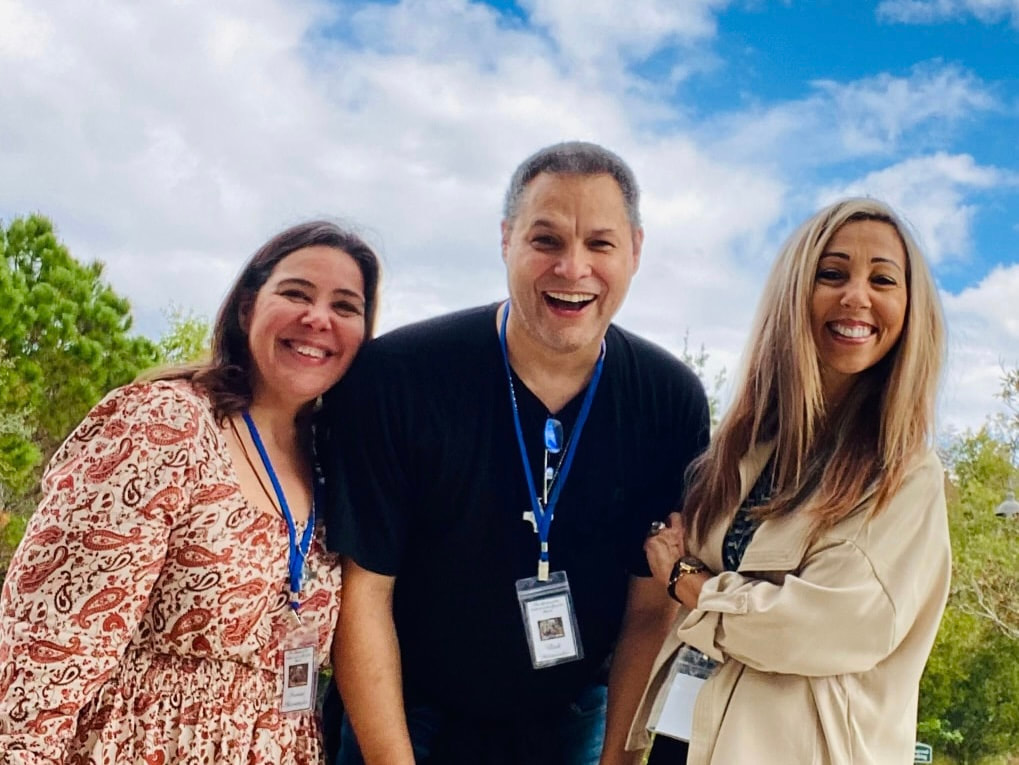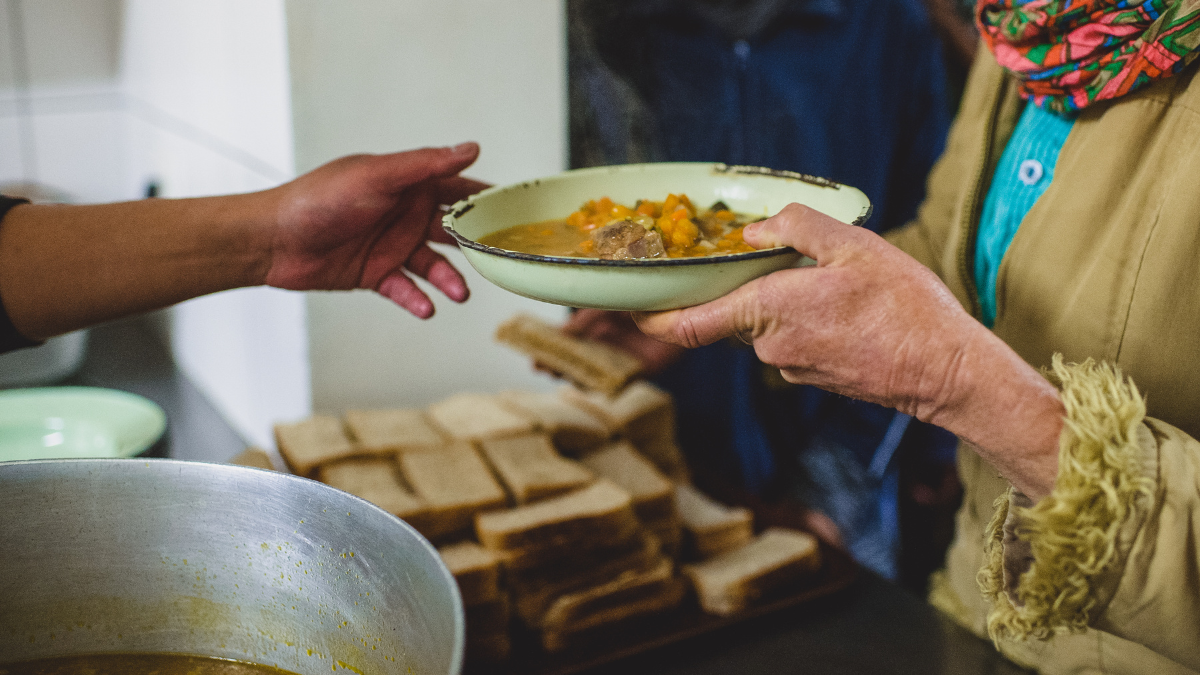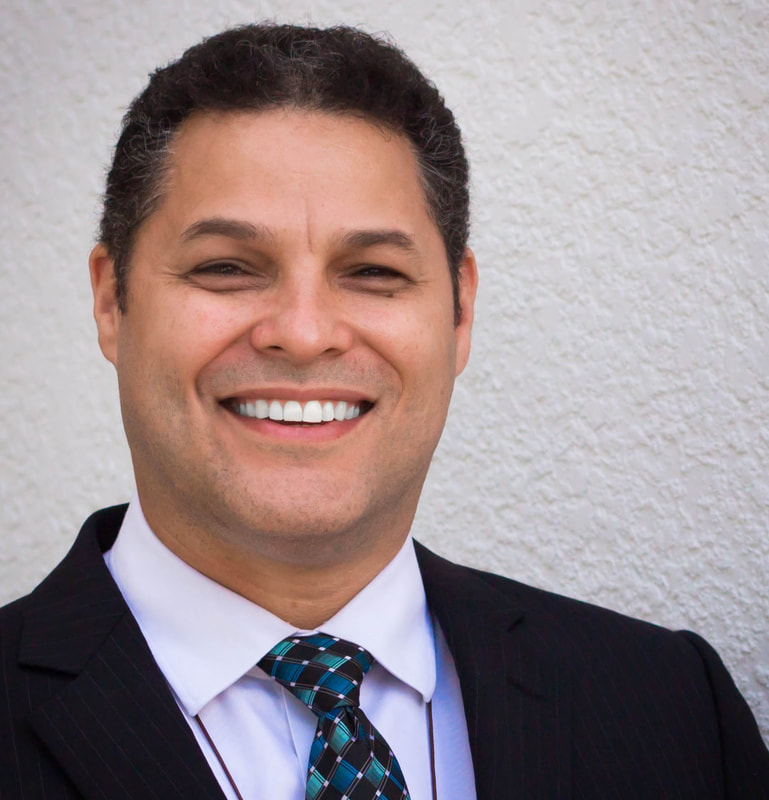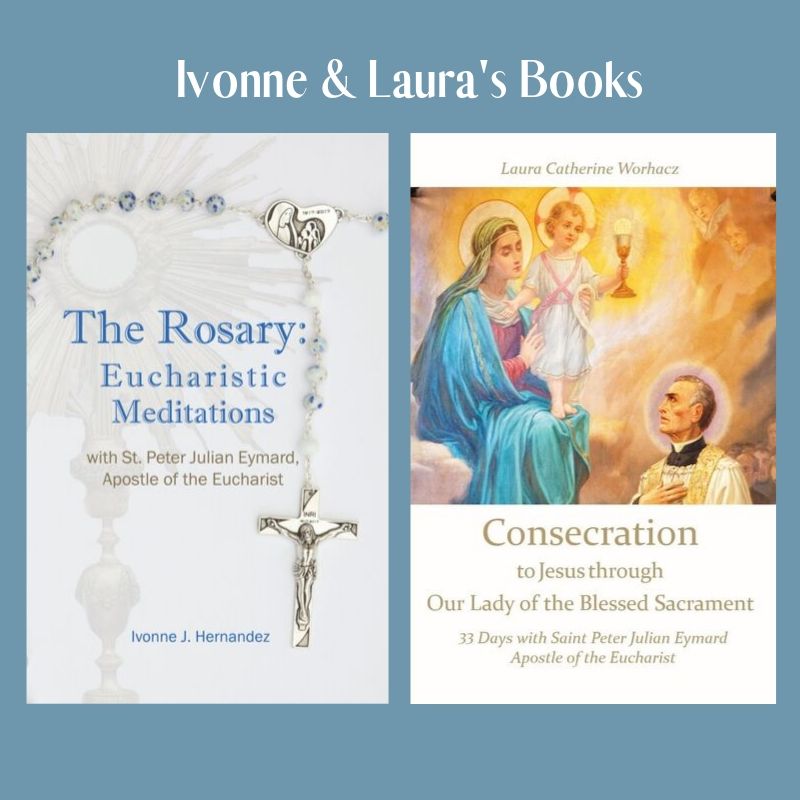ELISHEBA BLOGLaura, Ivonne, and Rick
write about their lives in the Eucharist. |
|
Few scenes from the Bible are as full of Eucharistic imagery as the “Feeding of the 5000.”
For us, people of the Eucharist, the heart of this scene echoes across time beautifully within the Mass, and there are a few elements we do recognize and celebrate in our Catholic tradition. We are shown how the whole group is divided into smaller groups, as our Mother Church is divided into individual parishes, yet united together in the sharing of the bounty, the meal of Christ. We all eat from the same source. Christ blessed the food brought before Him, fruit of the earth and work of human hands. He broke the bread, gave it to His disciples, multiplied so that the multitude all ate and were satisfied. In the same way today, the priest blesses the bread and wine, fruit of the earth and work of human hands. He breaks the bread, and gives it to Christ’s disciples, us, to be satisfied more than with food, for His overflowing Grace touches and replenishes each one of us. When we partake of His banquet, we must remember to be grateful for His gift of self to us. The fullness of our Lord is broken and shared with each of us present. This is life-changing and life-giving. Hidden in between the beautiful words of the bible passage above, specifically in Mark 6:37, our Lord says to us: “Give them some food yourselves.” Christ calls us to feed the hungry, but how can we when we do not have that much? Growing up in Puerto Rico, in a humble family, we never had “that much,” yet we never really lacked for anything. We had what we needed, not much more, and not much less. Compared to many of our neighbors, we were well off, for many did not have much. We had enough to feed just ourselves, but often friends would come to visit, and, somehow, food always found its way to their plates at the table. What if someone else also unexpectedly showed up? It would speak of our love and resourcefulness, that we would find a way to stretch our love. “Asopao” is a typical Puerto Rican dish. It is a very wet dish, rice cooked in stock, like a savory porridge. It was simple fare that would feed many with very little. What if we needed to include one or two or a few more to our table? We added a bit more rice and stock, said our prayer of thanksgiving, and again offered the work of human hands. The asopao just seemed to multiply. I remember being taught since youth that where two could eat, three could eat also. All it takes from us is a bit of sacrificial love. We are called to let go of our impressions of lack and embrace an attitude of plenty. When love compels us to share, we can get by with a little less. That small sacrifice embraces the ones in need. It is at times like these that we emulate Christ Jesus. He asks us, “How many loaves do you have? Go and see.” What are we to do then but to go and see? I have always found it interesting that, in our human nature, we tend to look at our lives and feel that we lack something, that we do not have enough. This feeling of lack gives an opening to sin. We become weary of others. We do not trust; we hide what we have instead of sharing it. We become more selfish and more isolated. That is not the right approach. In fact, giving of ourselves selflessly for the love of God, even when we do not have much to offer, allows Him to multiply our gifts by pouring out His Grace. Our Lord helps us give what is necessary and grants His portion generously. Our Lord is no scrooge; let us be generous as He is generous, that we may all be satisfied in Him who loves us. Let us pray: Lord, may your love be multiplied in us, that we may always give freely and generously to feed those hungry for food, love, companionship, compassion, and mercy. That through this work You have given to our human hands, the many may come to know You and love You. Amen.
0 Comments
Your comment will be posted after it is approved.
Leave a Reply. |
Categories
All
FOLLOW US ON SOCIAL MEDIA:
AuthorsWe are Ivonne J. Hernandez, Rick Hernandez and Laura Worhacz, Lay Associates of the Congregation of the Blessed Sacrament, and brothers and sisters in Christ. |
Copyright © 2024 Elisheba House Inc.
Elisheba House is a 501(c)(3) non-profit organization. Federal Tax ID Number 84-1894146
Florida registration for Solicitations of Contributions #CH71652
A COPY OF THE OFFICIAL REGISTRATION AND FINANCIAL INFORMATION MAY BE OBTAINED FROM THE DIVISION OF CONSUMER SERVICES BY CALLING TOLL-FREE (800-435-7352) WITHIN THE STATE. REGISTRATION DOES NOT IMPLY ENDORSEMENT, APPROVAL, OR RECOMMENDATION BY THE STATE.
Florida registration for Solicitations of Contributions #CH71652
A COPY OF THE OFFICIAL REGISTRATION AND FINANCIAL INFORMATION MAY BE OBTAINED FROM THE DIVISION OF CONSUMER SERVICES BY CALLING TOLL-FREE (800-435-7352) WITHIN THE STATE. REGISTRATION DOES NOT IMPLY ENDORSEMENT, APPROVAL, OR RECOMMENDATION BY THE STATE.





 RSS Feed
RSS Feed